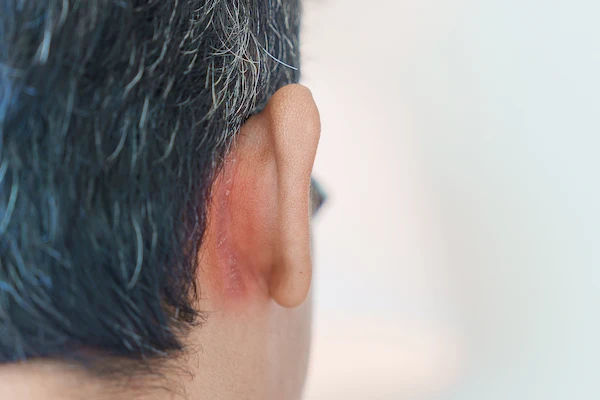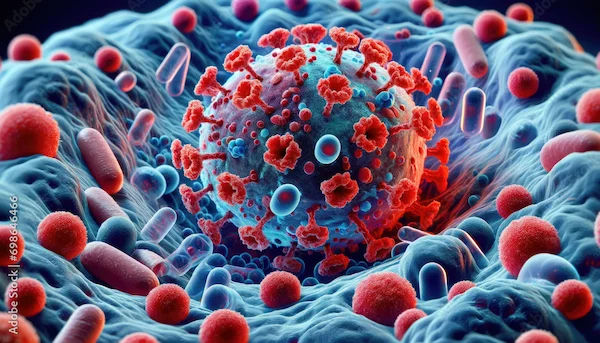Understanding Diarrhea: Symptoms, Causes, and Treatment
Understand diarrhea in detail, including its symptoms, underlying causes like infections or food intolerances, and treatment approaches. Learn how to manage and prevent complications such as dehydration.


Diarrhea is a common health issue that most of us have experienced at some point in our lives. While it’s usually not serious, frequent or severe diarrhea can lead to dehydration and discomfort. Understanding the symptoms, causes, and treatment options can help you manage it effectively and know when to seek medical help.
What Is Diarrhea?
Diarrhea is a condition where bowel movements become loose, watery, and more frequent than usual. It typically lasts a day or two and goes away on its own. However, if it persists for more than a few days, it may indicate an underlying health problem that needs attention.
Consult a Top Specialist
Common Symptoms of Diarrhea
The main signs of diarrhea include:
- Frequent, loose, or watery stools
- Abdominal cramps or pain
- Bloating
- Nausea or vomiting
- Fever (in some cases)
- Urgent need to use the bathroom
If you notice blood or mucus in your stool, experience severe dehydration (dry mouth, dizziness, extreme thirst), or have diarrhea lasting more than 48 hours, consult a doctor immediately.
What Causes Diarrhea?
Diarrhea can be triggered by various factors, including:
1. Infections
- Viral infections (e.g., norovirus, rotavirus)
- Bacterial infections (e.g., E. coli, Salmonella)
- Parasitic infections (e.g., Giardia)
2. Food Intolerances
- Lactose intolerance (difficulty digesting dairy)
- Gluten sensitivity (celiac disease)
3. Medications
- Antibiotics, antacids with magnesium, or certain cancer treatments
4. Digestive Disorders
- Irritable bowel syndrome (IBS)
- Inflammatory bowel disease (IBD) like Crohn’s disease or ulcerative colitis
5. Other Causes
- Stress or anxiety
- Consuming contaminated food or water
- Excessive alcohol or caffeine intake
How Diarrhea Affects Your Health
While mild diarrhea resolves quickly, prolonged or severe cases can lead to:
- Dehydration – Loss of fluids and electrolytes can cause weakness, dizziness, and even hospitalization in severe cases.
- Malnutrition – Chronic diarrhea may prevent proper nutrient absorption.
- Discomfort & Fatigue – Frequent bathroom trips can disrupt daily life and cause exhaustion.
Managing Diarrhea at Home
Most cases of diarrhea can be managed with simple home remedies:
1. Stay Hydrated
- Drink plenty of fluids like water, oral rehydration solutions (ORS), coconut water, or herbal teas.
- Avoid caffeine, alcohol, and sugary drinks, as they can worsen dehydration.
2. Eat a BRAT Diet
- Bananas
- Rice
- Applesauce
- Toast
These foods are gentle on the stomach and help firm up stools.
3. Avoid Certain Foods
- Dairy (if lactose intolerant)
- Spicy, fatty, or fried foods
- High-fiber foods (until digestion improves)
4. Probiotics
- Yogurt or probiotic supplements can restore healthy gut bacteria, especially after antibiotic use.
5. Over-the-Counter Medications
- Anti-diarrheal medicines like loperamide (Imodium) can help, but avoid them if you have a bacterial or parasitic
infection—your body needs to flush out the germs.
When to See a Doctor
Seek medical attention if you experience:
- Diarrhea lasting more than 2 days (or 24 hours in children)
- High fever (above 102°F or 39°C)
- Blood or black stools
- Signs of dehydration (dry mouth, dark urine, dizziness)
- Severe abdominal pain
Preventing Diarrhea
You can reduce the risk of diarrhea by:
- Washing hands frequently with soap and water
- Eating well-cooked food and avoiding street food in unhygienic conditions
- Drinking clean water (boiled or filtered)
- Getting vaccinated (e.g., rotavirus vaccine for children)
When to Consider a Doctor’s Consultation
If diarrhea is persistent, recurrent, or accompanied by concerning symptoms, it’s best to consult a healthcare provider. At Apollo 24|7, you can book an online consultation or schedule lab tests to diagnose the underlying cause. Early intervention can prevent complications and ensure proper treatment.
Final Thoughts
Diarrhea is usually a short-lived inconvenience, but knowing how to manage it can make recovery smoother. Stay hydrated, eat wisely, and don’t hesitate to seek medical help if symptoms worsen. Your gut health matters—take care of it!
Consult a Top Specialist
Consult a Top Specialist

Dr. M L Ezhilarasan
General Practitioner
6 Years • MBBS
Visakhapatnam
Apollo 24|7 Clinic - Andhra Pradesh, Visakhapatnam

Dr. Anand Ravi
General Physician
2 Years • MBBS
Bengaluru
PRESTIGE SHANTHINIKETAN - SOCIETY CLINIC, Bengaluru

Dr Syed Mateen Pasha
General Physician
2 Years • MBBS
Bengaluru
PRESTIGE SHANTHINIKETAN - SOCIETY CLINIC, Bengaluru

Dr. Sandhya Chandel
General Physician/ Internal Medicine Specialist
16 Years • MBBS, MD (Int. Med.), IDCCM
Bilaspur
Apollo Hospitals Seepat Road, Bilaspur
(100+ Patients)

Dr. Mohamed Azeem
General Physician/ Internal Medicine Specialist
2 Years • MBBS,MD(Internal Medicine) CCEBDM
Karaikudi
Apollo Hospitals Karaikudi, Karaikudi
Consult a Top Specialist

Dr. M L Ezhilarasan
General Practitioner
6 Years • MBBS
Visakhapatnam
Apollo 24|7 Clinic - Andhra Pradesh, Visakhapatnam

Dr. Anand Ravi
General Physician
2 Years • MBBS
Bengaluru
PRESTIGE SHANTHINIKETAN - SOCIETY CLINIC, Bengaluru

Dr Syed Mateen Pasha
General Physician
2 Years • MBBS
Bengaluru
PRESTIGE SHANTHINIKETAN - SOCIETY CLINIC, Bengaluru

Dr. Sandhya Chandel
General Physician/ Internal Medicine Specialist
16 Years • MBBS, MD (Int. Med.), IDCCM
Bilaspur
Apollo Hospitals Seepat Road, Bilaspur
(100+ Patients)

Dr. Mohamed Azeem
General Physician/ Internal Medicine Specialist
2 Years • MBBS,MD(Internal Medicine) CCEBDM
Karaikudi
Apollo Hospitals Karaikudi, Karaikudi




